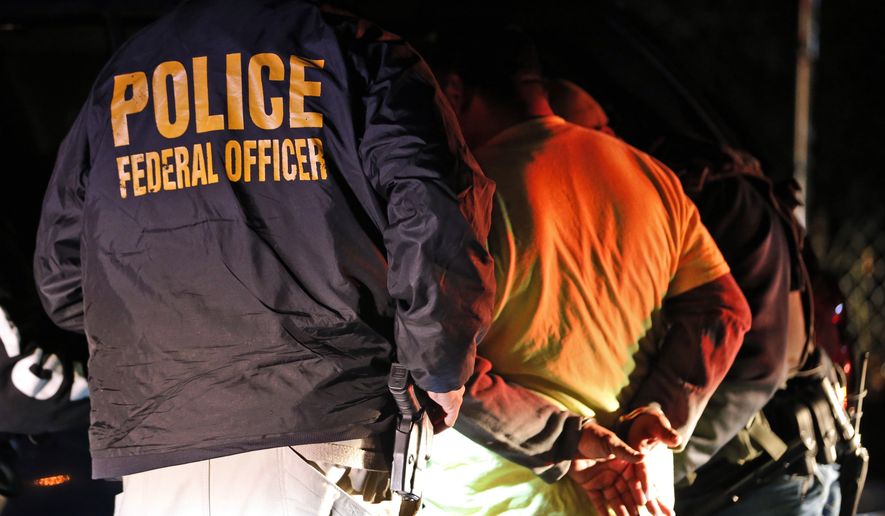The head of ICE blasted Prince William County in Virginia on Monday over a new policy that bans the jail from reporting people arrested on misdemeanor charges to federal deportation officers.
Under the new policy, even if someone has serious felonies on their record, as long as their new arrest wasn’t for a felony they won’t be flagged, according to U.S. Immigration and Customs Enforcement.
That includes people arrested for misdemeanor drunk driving.
The Prince William-Manassas Regional Jail will still report people arrested for felonies and will hold them for up to two hours beyond their normal release, giving ICE a chance to come pick them up. That is more than some other jurisdictions will do.
But ICE said the refusal to cooperate on those facing misdemeanor charges is short-sighted.
“This deterioration of the relationship with Prince William County will certainly have public safety consequences for the people of the county,” said Matthew Munroe, who runs deportation operations for the Washington field office. “We’ve seen that the most likely victims of these offenses are those in the immigrant community.”
The change, approved by the jail board last week, is the latest deterioration in the relationship between ICE and Prince William, whose immigrant community is growing in size and political power.
The county used to participate in the 287(g) program, deploying its own sheriff’s deputies to run names and begin the deportation process for deportable migrants booked into the jail.
That agreement expired earlier this summer, and the jail board declined to renew it despite pleading from ICE.
ICE said under the new sanctuary policy Prince William will end up releasing people like Jose Guillermo Castillo Garcia, an illegal immigrant who’s already been deported but snuck back in. He was arrested last year for driving without a license and misdemeanor DUI, but who had a long rap sheet, including assault and battery of a first responder and a felony conviction for DUI, which means it was at least a third offense.
• Stephen Dinan can be reached at sdinan@washingtontimes.com.




Please read our comment policy before commenting.